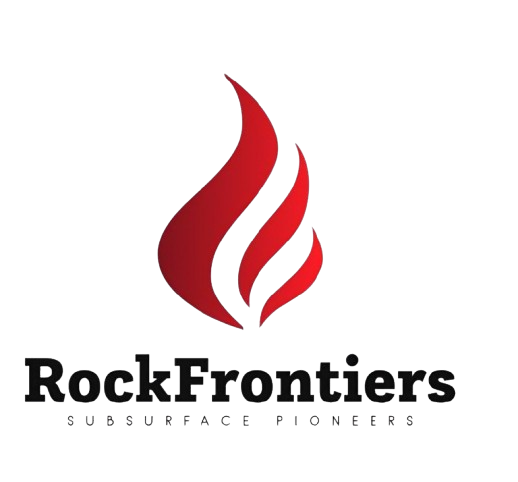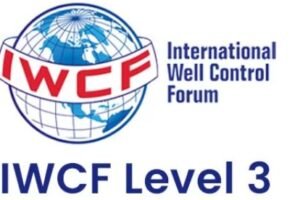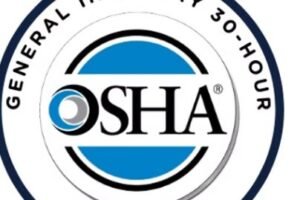Wellbore Integrity and Sealing Systems
Course Overview: This course covers the importance of wellbore integrity throughout the life cycle of a well. It includes topics such as cementing, casing design, and the sealing systems required to ensure wellbore stability and safety. Participants will learn how …
Overview
Course Overview:
This course covers the importance of wellbore integrity throughout the life cycle of a well. It includes topics such as cementing, casing design, and the sealing systems required to ensure wellbore stability and safety. Participants will learn how to design and implement effective sealing systems to prevent leaks and ensure the safe and efficient production of hydrocarbons.
-
📅 Day 1: Introduction to Wellbore Integrity
-
09:00–09:45 – Overview of wellbore integrity: importance and key considerations
-
09:45–10:30 – The well life cycle: planning, drilling, completion, and abandonment
-
10:30–10:45 – ☕ Coffee Break
-
10:45–11:30 – Wellbore instability: causes, impacts, and prevention strategies
-
11:30–12:15 – Cementing fundamentals: purpose, types, and materials
-
12:15–13:15 – 🍽️ Lunch Break
-
13:15–14:00 – Casing design: principles and best practices for casing selection
-
14:00–14:45 – Wellbore pressure management: hydrostatic pressure, formation pressure, and safety
-
14:45–15:00 – Recap and Q&A
📅 Day 2: Cementing and Casing Integrity
-
09:00–09:45 – Cementing operations: preparation, execution, and post-cementing evaluation
-
09:45–10:30 – Cementing technologies: slurry design, additives, and primary vs. remedial cementing
-
10:30–10:45 – ☕ Coffee Break
-
10:45–11:30 – Casing and cement bond logging: techniques and tools
-
11:30–12:15 – Cementing challenges: lost circulation, annular pressure, and cement integrity
-
12:15–13:15 – 🍽️ Lunch Break
-
13:15–14:00 – Casing design for wellbore integrity: considerations for different formations
-
14:00–14:45 – Case study: cementing failures and lessons learned
-
14:45–15:00 – Recap and Q&A
📅 Day 3: Sealing Systems for Wellbore Integrity
-
09:00–09:45 – Sealing systems overview: types of seals, materials, and installation methods
-
09:45–10:30 – The role of packers, plugs, and mechanical seals in maintaining integrity
-
10:30–10:45 – ☕ Coffee Break
-
10:45–11:30 – Advanced sealing technologies: swellable packers, inflatable seals, and more
-
11:30–12:15 – Sealing in high-pressure, high-temperature (HPHT) environments
-
12:15–13:15 – 🍽️ Lunch Break
-
13:15–14:00 – Monitoring wellbore integrity: pressure testing, seal failure detection
-
14:00–14:45 – Selecting sealing systems based on reservoir conditions and well design
-
14:45–15:00 – Recap and Q&A
📅 Day 4: Wellbore Integrity in Challenging Environments
-
09:00–09:45 – Wellbore integrity in deepwater and subsea wells
-
09:45–10:30 – Integrity challenges in sour gas reservoirs and corrosive environments
-
10:30–10:45 – ☕ Coffee Break
-
10:45–11:30 – Thermal expansion and contraction in wellbore systems: mitigating risks
-
11:30–12:15 – Casing collapse and ballooning: causes, prevention, and remediation
-
12:15–13:15 – 🍽️ Lunch Break
-
13:15–14:00 – Cement integrity in unconventional wells: horizontal, multi-stage fracking wells
-
14:00–14:45 – Sealing systems for high-temperature environments
-
14:45–15:00 – Recap and Q&A
📅 Day 5: Monitoring, Maintenance, and Well Abandonment
-
09:00–09:45 – Real-time monitoring of wellbore integrity: tools and technologies
-
09:45–10:30 – Well integrity testing: pressure tests, leak detection, and diagnostics
-
10:30–10:45 – ☕ Coffee Break
-
10:45–11:30 – Preventive maintenance: scheduling interventions and monitoring wear
-
11:30–12:15 – Well abandonment and decommissioning: ensuring lasting integrity after abandonment
-
12:15–13:15 – 🍽️ Lunch Break
-
13:15–14:00 – Regulatory requirements and best practices for wellbore integrity
-
14:00–14:45 – Group activity: designing a wellbore integrity plan for a challenging reservoir
-
14:45–15:00 – Recap, Q&A, and course wrap-up
-
Target audiences
- Reservoir Engineers, Geologists
You May Like
📘 Underbalanced Drilling (UBD) Techniques and Safety
🎯 Course Description: This intensive 5-day program focuses on Underbalanced Drilling (UBD) – an advanced technique used to drill wells where the hydrostatic pressure of the fluid is intentionally kept below formation pressure. Participants will learn how to implement UBD …
📘 IOSH Managing Safely
🎯 Course Description: A practical, 5-day program designed to help managers and supervisors learn how to manage safety and environmental responsibilities in their teams. Emphasis is placed on identifying risks, measuring performance, and leading safely using internationally recognized good practices. …
📘 IWCF Level 3 Well Control (Surface BOP)
🎯 Course Description: This is an intensive course aimed at drilling / well service personnel needing to gain supervisory competence in well control using surface blow‑out preventers (BOP) under the IWCF standard. It covers theory, hands‑on practice, and assessments for …
Advanced Specialist Petroleum GeoMechanics
📘 Course Description: This elite-level course is tailored for petroleum geomechanics specialists and senior subsurface professionals engaged in complex field development projects. It provides a deep technical dive into stress modeling, anisotropic rock behavior, coupled geomechanical-reservoir simulation, fault/fracture mechanics, and …
📘 OSHA 30‑Hour General Industry Safety and Health
🎯 Course Description: This 5‑day course provides in‐depth knowledge of workplace safety and health in general industry sectors. It covers OSHA regulations, hazard recognition, safety programs, and industry best practices. Participants will gain the expertise needed to maintain a safe …






